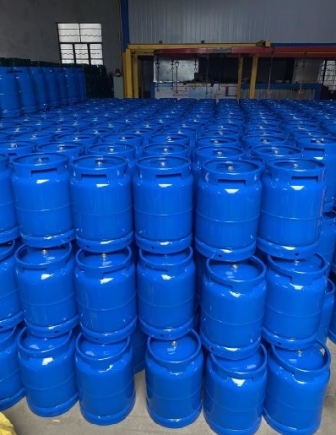
VIDEO: Mixed reactions meet Cylinder Re-Circulation Model implementation
There have been mixed reactions among consumers of Liquefied Petroleum Gas (LPG) concerning the implementation of the Cylinder Re-circulation Model (CRM) being championed by the National Petroleum Authority (NPA) under the supervision of the Ministry of Energy, which is scheduled to take off in September 2023.
Advertisement
The Vice President of the LPG Marketers Association, Gabriel Kumi has said that plans to implement the CRM in September is too early adding there is too much confusion surrounding the roll out of the policy and has therefore called for more education.
Graphic Online sampled views of some consumers at some gas filling stations in Accra on their awareness of the policy.
Knowledge on CRM policy
Despite welcoming the policy, many respondents said they had never heard of it while some said they were privy to the information courtesy radio and television. Most of them were of the view that majority of Ghanaians were clueless about the policy.
Aside from the lack of knowledge which they said could lead to misunderstandings, some said they will prefer to their personal cylinders than picking up cylinders circulating in different homes
“I don’t have any knowledge about it but I think it’s a good thing that cylinder is going to be re-circulated. The public should be educated on it too,” said Edem Tamakloe, a pastor at God’s General Assembly.
“I haven’t heard of anything like that but I think it’s very good. I didn’t know about it so I think the public should also be educated on it. Gas is very good and essential so they should implement the policy,” said Portia Awuah Bafffour, a factory hand.
This is what a Taxi Driver, Theophilus Boateng had to say: “I haven’t heard anything about it and for me I don’t know if it is good or not because it would favour some people and won’t favour others. I also think September is too early for that so they should postpone it to next year.”
Public Education
Response on more public education was 50/50. Some respondents mentioned that more public education was crucial since majority of Ghanaians were still in the dark concerning the policy and its implementation. They said the stipulated date for the roll-out was woefully inappropriate calling for more time and education.
However, others were of the view that September would be a perfect time to roll-out the project since the cylinder manufacturing companies and gas bottling facilities have declared their readiness for the project.
“Yes! I’ve heard of it on the radio and I think September would be okay. It’s better to educate the public on it while the project is ongoing so that they would understand it better,” said Sylvanus Mensah Laryea, a Driver.
“Today is the first time of me hearing this, but I think it’s a good idea. Public education should be done because I’m sure there are other people who do not know about it too like I didn’t,” said Vic Kabutey, a Seamstress.
Benefits
As mentioned earlier, majority of LPG consumers welcomed the policy. They said it would be beneficial for Ghanaians to get access to gas without owning a cylinder considering the high price of cylinders in recent time. Some also added that the policy would free them from having to repair faulty cylinders every now and then since the NPA would be solely responsible for maintenance.
“It’s a good idea and it’s also convenient since it’ll make it easier for me and others to use gas but I think public education on it would also help because it’ll make the public aware of it,” said Peter Amowui, A Software Programmer.
A teacher, Khalifa Ahmed thinks the idea is perfect saying: “The idea they are bringing into the system is very good. It’s going to help us a lot because this cylinder if it gets rusted it is sometimes difficult to use. So, most of the times when we come here, they are even advising us to be careful. You people just educated me about it but I think this idea is going to help us a lot and September is okay, in my opinion.”
Background
In October, 2017, the Ministry of Energy mandated the NPA to constitute an implementation committee to plan, oversee and ensure the smooth and successful implementation of the National LPG Promotion Policy. The committee commenced its work on November 17, 2017 and as part of its terms of reference, it embarked on working visits to some countries operating the CRM in order to understand the supply chain dynamics, regulatory framework and challenges associated with the implementation of the CRM so as to develop the best implementation strategy for the model.
The CRM policy is to ensure that at least 50 per cent of Ghanaians have access to safe, clean and environmentally friendly LPG by 2030.
It is also meant to improve access to LPG, improve safety in the distribution of LPG and to increase adoption of LPG. Additionally, it is a policy shift to stop the unnecessary loss of lives and properties as well as gas filling stations, mostly due to human error.




